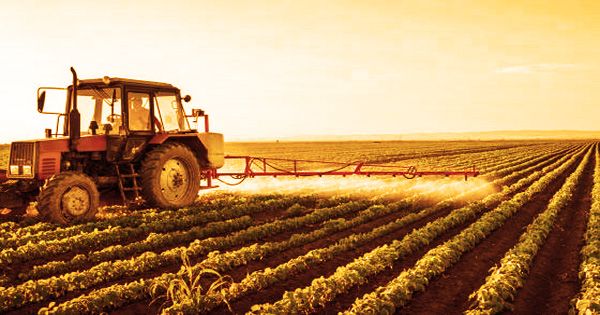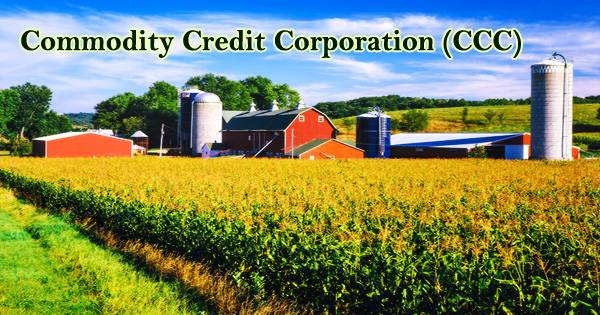The Commodity Credit Corporation (CCC) is a state-owned American enterprise (SOE) with the mission of supporting the domestic agricultural sector. Since 1933, it has acted as a compulsory funding method for agricultural programs. For the purposes of raising demand, stabilizing prices, ensuring adequate supplies, and promoting the efficient marketing of agricultural commodities, the CCC is allowed to buy, sell, lend, make payments and engage in other activities. The CCC is additionally dynamic globally, through food help projects, and endeavors to modernize unfamiliar farming practices.
The CCC, which has no employees, is basically a funding institution for USDA farm price and income support programs for goods, guarantees of export credits for goods, and subsidies for agricultural exports. CCC holds capital stocks of $100 million; buys, owns, sells, and donates stocks of commodities; and provides farmers and ranchers with loans. The projects financed through CCC are managed by representatives of the Farm Service Agency and the Foreign Agricultural Service. The CCC demonstrations as a team with the United States Department of Agriculture (USDA) and is managed by the Secretary of Agriculture close by its own Board of Directors.

Commodity Credit Corporation (CCC)
The CCC has a permanent $30 billion unlimited borrowing authority from the U.S. Hacienda. Treasury. By statute, it earns an annual appropriation equal to the value of the net realized loss of the previous year. Instead of depending on the employees of other federal agencies, such as the International Agricultural Service and the Farm Service Department, it does not have its own staff. The CCC was made to settle, uphold, and ensure ranch pay and costs. The CCC is additionally the Federal government’s essential financing arm for some homegrown and international agricultural programs.
The CCC, established in 1933 by President Franklin Delano Roosevelt, was established to provide the American agricultural sector with stability and support. It helps to maintain healthy and sufficient supplies and assists in the orderly delivery of agricultural commodities. Today, this is cultivated by giving different sponsorships to the segment as least “support prices” paid for American agrarian items and shares on the importation of contending unfamiliar products. While CCC functions on the basis of a large number of statutory authorities, its broad powers enable it to carry out almost any operation necessary to achieve the U.S. agriculture support objectives.
The Commodity Credit Corporation (CCC) is also working to make the materials and equipment necessary for the production and marketing of agricultural commodities available. Furthermore, the CCC gives landowners incentives and compensation to develop conservation practices on their land. In carrying out operations, CCC is directed to use the normal and customary channels, services, and trade and trade agreements to the full extent practicable. By adding extra gracefully to the commercial center, this selling weight can help decrease costs, conceivably securing buyers. Thusly, the CCC’s intercessions can help decrease the degree of unpredictability in food costs.
Numerous national services such as income security, disaster, and conservation programs are run by the CCC. It also offers direct credit and guarantees sales of goods to foreign nations worldwide. The CCC also funds the American agricultural sector in addition to purchasing and selling their goods by offering loans at subsidized rates. These loans are often used to finance crop production, with the resulting crop being used as collateral for the principal of the loan.
The CCC has no workforce of its own. Also, the CCC gets immediate appointments for explicit projects, for example, its Credit Reform programs, unfamiliar award, and gift projects, and calamity help. CCC can’t procure property or enthusiasm for the property except if it is identified with giving stockpiling to program usage or securing CCC’s monetary advantages. International assistance is a major concern for the CCC as well. Renting or leasing space required to conduct business (e.g. warehousing of goods) is permissible. Each program sponsored by the CCC helps accomplish aspects of both the CCC mission and the agency’s strategic plan under which the program falls.
In order to fight hunger and malnutrition, the CCC provides direct credit and guarantees sales of goods to foreign countries, and sends agricultural commodities. Most CCC operations are guided by legislative authorities, which expressly order the USDA to oversee and finance CCC activities. Helping creating nations and developing majority rules systems under the Food for Progress Program is likewise a part of the CCC’s endeavors to modernize and fortify global agriculture.
Information Sources:
















